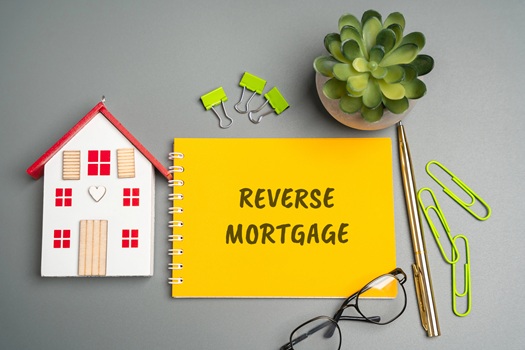
Reverse mortgage in Myrtle Beach SC
As homeowners get closer to retirement, financial planning becomes increasingly important. Many begin searching for reliable tools that provide stability while allowing them to remain in their homes. For some, a reverse mortgage becomes an appealing option because it turns home equity into usable funds without requiring monthly payments. However, choosing this loan requires thoughtful consideration, especially for individuals who want security during their later years.
Because this decision directly affects long-term financial health, asking the right questions helps you fully understand what to expect. When people in Myrtle Beach SC begin exploring senior home equity options Myrtle Beach SC, they often find that this loan offers flexibility, but only if they clearly understand the obligations attached to it. Clarity is essential when you are making a choice that affects your future comfort and peace of mind.
Retirement planning also benefits from understanding how this loan fits into retirement cash flow planning. When handled correctly, it can supplement income, add financial breathing room, and reduce stress during retirement. Yet, like any major decision, it works best when homeowners start with detailed guidance from an experienced loan officer.
Why Counseling Is Required Before Applying for a Reverse Mortgage
The first question to address is why counseling is mandatory. This session protects borrowers by ensuring they understand how the loan works before signing anything. As the counselor reviews program details, risks, and alternatives, homeowners gain a clearer picture of the commitment. Since the session is independent, borrowers receive impartial explanations based on mortgage counseling requirements, not sales pressure.
During counseling, homeowners can ask questions they may hesitate to ask a lender. The session also clarifies how the loan impacts taxes, heirs, and long-term equity. Because applying for a reverse mortgage is a major decision, this step ensures you enter the agreement confidently and responsibly.
Another benefit is that the counselor reviews alternative financial options. In some cases, homeowners discover that a different approach suits their goals better. With this added clarity, they avoid choosing a loan that may limit their financial flexibility over time.
Understanding What Happens to Your Home After You Pass Away
Estate planning is essential for many families, and understanding how the loan affects your home after death is vital. When discussing a reverse mortgage, your loan officer should clearly explain what your heirs can expect. This is especially important for families in Myrtle Beach SC, where homes often carry long-term sentimental value.
If both spouses are listed on the loan, the surviving spouse typically remains in the home as long as program rules are followed. However, if only one spouse is named, the situation changes. Heirs may need to settle the loan balance or refinance the property to retain ownership. These conversations align with safe retirement lending practices that help protect families from unexpected complications.
Talking through these details ensures your family knows exactly what will happen. Planning ahead minimizes confusion and prevents emotional stress later, especially when families are trying to manage responsibilities during a difficult time.
Evaluating the Costs Associated With a Reverse Mortgage

Home equity in Myrtle Beach SC
Every homeowner should ask about upfront and ongoing costs. A reverse mortgage in Myrtle Beach includes origination fees, mortgage insurance premiums, servicing charges, and interest accumulation. Because these expenses reduce future equity, knowing the full cost breakdown is essential for smart decision-making.
These costs matter even more in markets like Myrtle Beach SC, where home values vary seasonally. Understanding how projected interest and fees affect long-term equity helps homeowners determine whether the loan supports their retirement needs. Combining this research with coastal retirement financing tips creates a more complete financial picture.
Knowing the financial impact ahead of time allows borrowers to avoid surprises and create a realistic retirement plan. This knowledge supports better budget management and more effective asset protection.
How a Reverse Mortgage Affects Your Retirement Benefits
Homeowners often ask whether this loan impacts Social Security, Medicare, or income-based benefits. Fortunately, this loan does not affect Social Security or Medicare because neither program is income tested. However, the funds from a reverse mortgage can influence SSI or Medicaid eligibility if not managed properly.
This is why loan officers encourage retirees to structure their loan disbursements wisely. When combined with retirement cash flow planning, homeowners can avoid unintentionally affecting important benefits. These discussions help retirees keep access to the support programs they depend on.
Because benefit rules vary across programs, asking a financial advisor for guidance ensures clarity. With proper advice, you can enjoy the benefits of the loan without compromising essential services.
Exploring Payment Options Before Finalizing the Loan
A major advantage of this loan is flexibility. Borrowers can choose lump-sum payments, monthly deposits, or a line of credit. Each method affects interest differently, so choosing the best approach requires thoughtful comparison. Reviewing options with the help of David Stacy Reverse Mortgage Specialist thoroughly helps homeowners align the loan with their financial goals.
Some retirees prefer steady monthly payments, while others appreciate the freedom of drawing funds only when needed. When combined with coastal retirement financing tips, these options create a tailored financial strategy. Considering how interest accumulates helps retirees avoid unnecessary long-term costs.
These discussions allow homeowners to match their loan structure to their lifestyle. Choosing wisely helps ensure the reverse mortgage becomes a supportive resource rather than a burden.
FAQ
Does a reverse mortgage require monthly payments?
No. Repayment usually begins when you move out, sell the home, or pass away.
Will my family lose the house when I die?
Heirs can often keep the home by paying the balance or refinancing.
Can a reverse mortgage affect Medicaid or SSI?
Yes, if withdrawals increase your countable income or assets.
Can I change my payout method later?
Some programs allow modifications, depending on equity and loan terms.
Does this loan affect Social Security or Medicare?
No. These programs are not income-based.
Why work with a specialist?
Professionals like David Stacy Reverse Mortgage Specialist help you understand fees, equity impact, and long-term planning.
Ready to make well-informed retirement decisions? Contact David Stacy Reverse Mortgage Specialist today and discover whether a reverse mortgage is the smart financial solution for your future in Myrtle Beach SC.
David Stacy Reverse Mortgage Specialist
Myrtle Beach, SC 29577
843-491-1436




